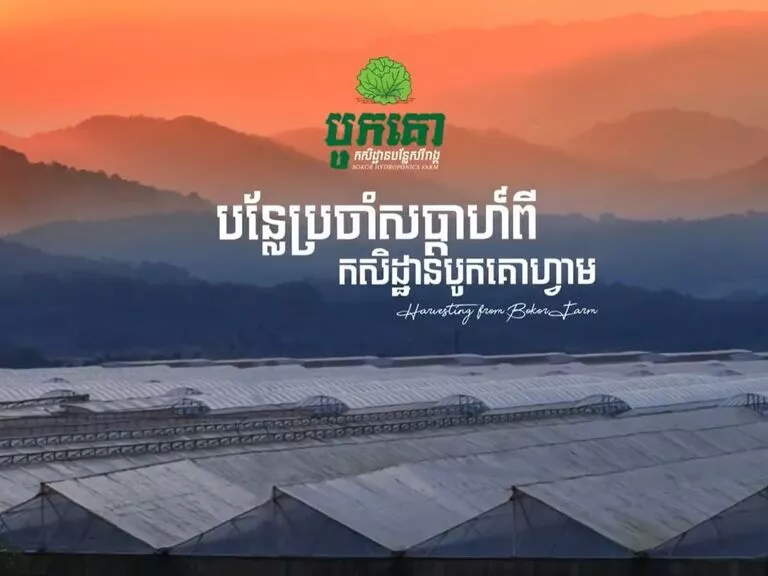Hydroponic Farm - Bokor Mountain
Hydroponic Farming on Bokor Mountain: A Sustainable Solution to Food Security
Bokor Mountain, located in the southern province of Kampot in Cambodia, is a popular tourist destination that attracts thousands of visitors every year. However, this mountain is more than just a scenic spot; it has the potential to become a sustainable food source for the local community through hydroponic farming.
Hydroponic farming is a method of growing plants without soil, using a nutrient-rich water solution instead. This technique allows for year-round cultivation of crops, regardless of weather conditions or soil quality. Hydroponic farming is an efficient and sustainable solution to food security, as it requires less water and land than traditional farming methods and can produce higher yields in a smaller space.
Bokor Mountain offers ideal conditions for hydroponic farming, as it has a cooler climate and abundant water supply. The mountain is also located close to the coastal city of Kampot, which has a high demand for fresh produce. By establishing a hydroponic farm on Bokor Mountain, local farmers can provide fresh and healthy produce to the community, while also creating new job opportunities and boosting the local economy.
The benefits of hydroponic farming on Bokor Mountain are numerous. First and foremost, it provides a sustainable solution to food security, as it allows for year-round cultivation of crops. This is particularly important in a country like Cambodia, where extreme weather conditions can often result in crop failures and food shortages.
Hydroponic farming also requires less water and land than traditional farming methods, making it a more environmentally friendly option. This is especially important in areas where water is scarce, as hydroponic farming uses up to 90% less water than traditional farming methods.

Furthermore, hydroponic farming can produce higher yields in a smaller space, which means that farmers can grow more crops in less time. This can result in higher profits for farmers, which can help to boost the local economy.
Another benefit of hydroponic farming is that it can be done indoors, which means that crops can be grown in a controlled environment without the use of pesticides or herbicides. This makes the produce healthier and safer for consumption, which is particularly important for consumers who are concerned about the use of chemicals in agriculture.
Establishing a hydroponic farm on Bokor Mountain would also create new job opportunities for the local community. Hydroponic farming requires specialized skills and knowledge, which means that farmers would need to be trained in this technique. This would create new job opportunities for young people and women, who are often marginalized in the labor market.
In addition, hydroponic farming can be a profitable business, as it allows farmers to grow high-value crops such as herbs, leafy greens and strawberries. These crops are in high demand in the local market and can fetch a premium price, which can help to increase the income of local farmers.
Hydroponic farming on Bokor Mountain is not without its challenges, however. Establishing a hydroponic farm requires significant investment in infrastructure and equipment, as well as ongoing maintenance and monitoring. Farmers would also need to be trained in this technique, which can be time-consuming and costly.
Furthermore, hydroponic farming requires a reliable source of electricity, which can be a challenge in rural areas. However, with the support of the government and local organizations, these challenges can be overcome and hydroponic farming can become a sustainable solution to food security on Bokor Mountain.
In conclusion, hydroponic farming on Bokor Mountain has the potential to become a sustainable solution to food security in Cambodia. By providing fresh and healthy produce to the local community, creating new job opportunities and boosting the local economy, hydroponic farming can help to improve the lives of people living in rural areas. With the right investment and support, hydroponic farming can become a model for sustainable agriculture in Cambodia and beyond.